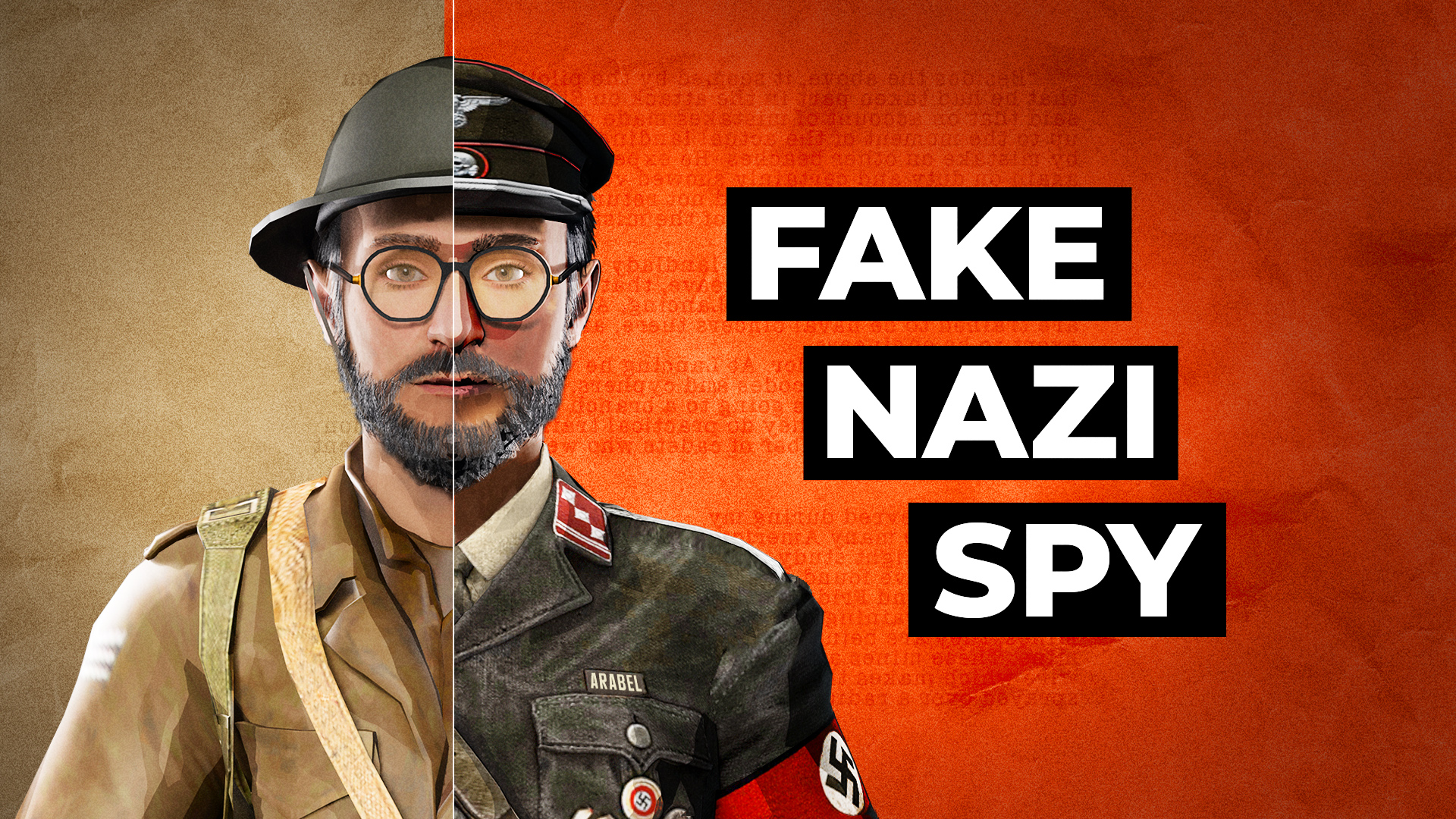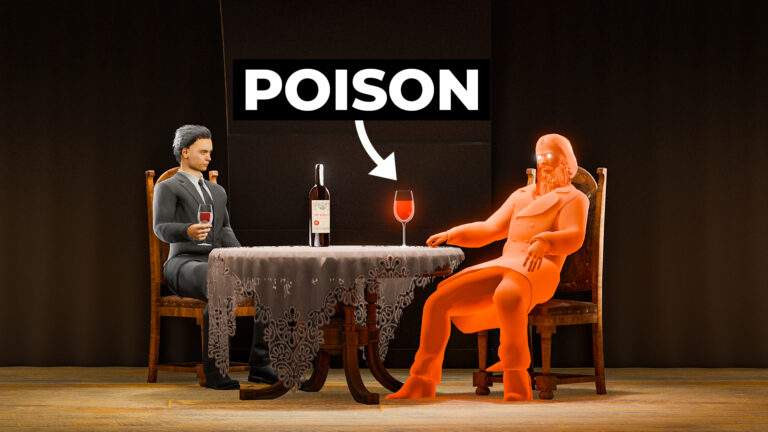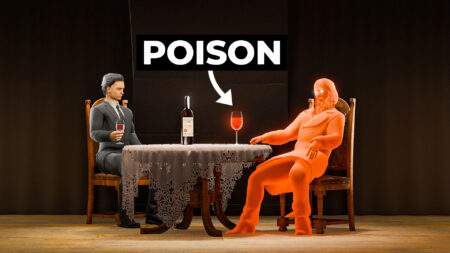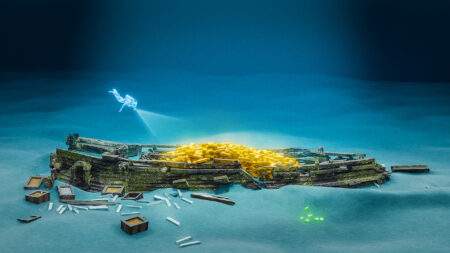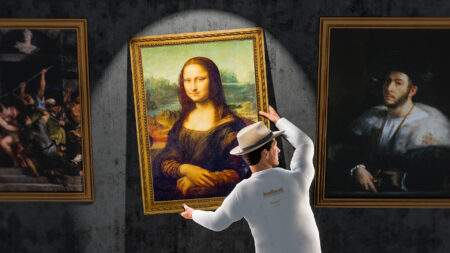There really is nothing quite like the element of surprise. When the allied forces appeared over the horizon on the morning of d-day, it completely caught the Nazis off guard. They weren’t ready for such an enormous attack, at least, not here. According to German intelligence, an attack was expected to take place 150 miles away in Calais – and so most of their troops had been moved to defend that location.
While the Nazis were defending an empty beach, the allies stormed their way into Normandy and ultimately went on to win the war. The Nazis had been tricked, and it was largely thanks to one man who had spent years trolling them from his own home.
By feeding them correct but useless information, it led them down rabbit holes, slowed them down, and ultimately tricked them into losing the war. This man had no spying experience, and yet with sheer charisma and imagination, he managed to win the trust of Hitler, whilst simultaneously becoming Britain’s best spy.
Spanish Civil War
Before the outbreak of World War 2, Spain was having its own civil war between the republicans and the nationalists. No one despised the war more than Juan Pujol Garcia, a chicken farmer from Barcelona.
His farm was taken by the government, his mother and sister were kidnapped and he himself was forced to fight. He hated the extremism of both sides – so when World War 2 came along, he was determined to do something to stop the Nazis.
Becoming a German spy
He went to the British embassy in Madrid and offered to start spying on the Germans. But the Brits were suspicious and turned him down – and so Pujol had to come up with a different tactic.
This time, he went to the German embassy, pretending to be a passionate Nazi supporter that worked for the Spanish government. At the time, the Germans didn’t have a reliable spy network in Britain, and so they desperately needed all the help they could get. Pujol was hired!
They gave him a codebook, a bottle of invisible ink, £3,000 in cash and told him to move to London and start spying on the British. Instead, he moved to Portugal and pretended he was reporting from London.
Garbo begins
Using nothing but a map of Britain and a tourist guide from his local library, he started talking about the places he was visiting and the things he was seeing, like military training exercises on Lake Windermere and warships leaving the South West.
In between all of the military sightings, he filled his letters with mundane personal details, like going for walks in the center of London, visiting local cafes and even mentioned when he was feeling ill.
To take things even further, he started creating a network of sub agents that were supposedly feeding him information from all over the country. There was the Swiss/German businessman stationed in Liverpool, the Venezuelan student in Glasgow, the Portuguese man living in Wales and the pilot that had agreed to carry his letters from London.
Each agent had a detailed backstory and family members that Pujol talked about at length. Of course, none of these people actually existed, but if the Germans ever called him out on anything, his sub agents could take the blame, since they were the ones reporting the information.
Each letter was so long and so detailed that the Germans started to believe him, and they even started sending 500 dollars a month to pay for his network of agents – that’s 11,000 dollars in today’s money.
But this was only the beginning, Pujol would go on to scam almost 2 million dollars out of the Nazis.
The Brits discover Garbo
So far, the Germans were impressed with Pujol’s work, and so they started asking for more specific information. That’s when things took an interesting turn.
In his 3rd letter, Pujol sent this report back to the Germans:
“A convoy of 18 ships left the port of Liverpool on the 28th of March. It was made up of a coal boat, a petrol tanker, a transporter with RAF technicians carrying medical supplies, of around 3,000 tons.
The rest of the ships were large, over 8,000 tons and carried war supplies, grenades, anti-aircraft guns and other weapons. They were headed for the island of Malta.
P.S. I’m still in bed and getting better, I hope to have more reports for you soon.”
Although Pujol made the whole thing up, by sheer coincidence, a fleet of warships had actually left Liverpool around the same time. But before his letter ever reached the Germans, it was intercepted by Britain’s intelligence agency, MI5, sending them into panic mode.
A full scale man-hunt was launched to try and track down this mysterious network of spies, but unsurprisingly, they found nothing. It wasn’t until they really started reading through Pujol’s letters that they saw something odd.
According to one of Pujol’s agents, “people in Glasgow will do anything for a liter of wine”. This sentence gave it all away. A liter of wine?! This really didn’t reflect the typical Scottish drinking habits and Britain never used the metric system.
The Brits then learned that the Germans had actually wasted time and resources trying to hunt down Pujol’s fake convoy of ships heading to Malta. It became clear that whoever was writing these letters, they were feeding the Nazis false information to confuse them, and it was working.
MI5 were so impressed that they tracked down Pujol and decided to turn him into a real British spy. And in April 1942, Pujol moved to London for real and was given the codename ‘Garbo’. Now, with access to real military information, he was about to take his trolling to the next level.
Garbo’s North African deception
The allies were planning to launch a surprise attack on the North coast of Africa, where Nazi forces were gaining power. And so over the next few months, Garbo started dropping very specific hints, suggesting that an attack was instead being planned for Norway.
One of his agents saw military mountaineering drills taking place, and Canadian troops gathering in the east of Scotland. Another agent heard rumors of Russian troops advancing westwards.
Without ever mentioning Norway, he gradually painted the picture that it was the likely target, drawing the attention away from Africa. Hitler himself was particularly worried about this attack, and ended up moving hundreds of thousands of troops to protect the Norwegian borders.
Garbo’s next move was a stroke of genius.
With the African invasion set to take place on the 8th of November, Garbo wrote another letter to the Germans, this time detailing exactly how the allies were going to carry out the attack. He dated the letter the 1st of November, but purposely held onto it for another week.
The letter arrived in the hands of the Germans on the 9th, but it was too late. The day before, allied forces invaded the North African coast with over 100,000 men. The letter had all the correct details of the invasion, but it was simply too late to be of any use. The Germans however were amazed by Garbo’s work and replied “We are sorry it arrived too late, but your last report was magnificent.”
There was one small problem though. A large portion of the fleet had left from Liverpool, and Garbo’s agent had mysteriously failed to report it. This might have seemed suspicious to the Germans, so Garbo decided it was time for that agent to die. He made up a story about his agent falling ill and dying in hospital, and even placed an obituary in the local newspaper.
The Germans were sorry to hear about this and agreed to pay a pension to the agent’s widow.
Over the next several months, Garbo continued adding more members to his network, bringing the total to 27 spies. Of course, all of these agents had to be paid, and by the end of 1943, the Germans were sending Garbo over $100,000 a month to fund his network. They were so pleased with the information he was providing that they stopped hiring new spies in Britain.
With the network now in full swing, it was time for Garbo’s masterpiece, d-day.
D-day deception
The d-day landings at Normandy were set to be the largest invasion ever carried out by sea, with more than 2 million soldiers from over 12 different nations, all arriving in over 100,000 vehicles. Pulling this off without the Germans suspecting a thing would be an enormous challenge, but Britain had the best man for the job.
To avoid the information from arriving late like last time, the Germans told Garbo to start sending his messages via encrypted morse code instead of letters.
Garbo would first write his message in Spanish and break the message up into clusters of 5 characters. Then, consulting a code table, he would change each letter to jumble up the message. An E became a K, an L became a C and so on…
An operator would then start typing out the jumbled message into morse code, which would be transmitted over radio to the Germans. At the other end, the message would be decoded and translated into German.
With the ability to now send even more information, Garbo began sowing the seeds of doubt that would make d-day an enormous success.
One of Garbo’s agents who worked in the London underground, claimed that the tunnels were being extended towards the South East, and that ammunition was being moved down the tunnels.
Another agent saw assault barges gathering at the port of Dover, and convoys of Canadian troops arriving in Southampton.
Garbo himself began inventing an entire army of US soldiers, called the First US Army Group and reported large numbers of them gathering in the South East.
All of this activity in the South East pointed towards a massive attack on Calais, the closest point to England. In order to back up Garbo’s lies, the Brits started planting real evidence all around the South East.
Fake airstrips were cut into fields and hollow wooden planes were placed at the side. German planes started bombing these fake sites, so they knew it was working.
A gigantic fake oil-storage facility was set up in Dover, and photos of King George visiting the site were placed in the local newspaper.
Hollywood style movie sets were used to turn modest boats into enormous battleships and inflatable tanks were placed everywhere.
They had built up an entire army of fake soldiers, vehicles and supplies that completely distracted the Germans from the real preparation that was going on for Normandy.
The goal was to convince the Germans that the Normandy attack was simply a trap and that the real and much larger attack would happen later in Calais. Amazingly, the British intercepted a conversation between Hitler and a Japanese ambassador, where Hitler mentioned that the first attack was going to be a decoy and that they were really preparing for the 2nd attack elsewhere.
By this point, it was clear that Garbo’s messages were now landing directly on Hitlers desk, and he was believing everything. Whenever Garbo told them about movement in the South East, the Nazis would move the pin on their map.
They made the crucial decision to move hundreds of thousands of troops to defend Calais. That was hundreds of thousands of troops that wouldn’t be in Normandy.
D-day arrives
June 5th, 1 day before d-day.
Although the German radio operators usually signed off at 11:30, Garbo insisted that tonight they should listen out for a message at 3am. Big news was expected from one of his subagents.
At 3am, Garbo reported that vomit bags and rations had been handed out to soldiers. This could only mean one thing, the attack was about to happen.
But hours went by and no response was received. The Germans had gone to sleep.
The allies rocked up to Normandy at 6:30, completely undercover, outnumbering the Germans by more than 3 to 1. It was a brutal day, but the allies managed to secure their entrance into France – and over the next 6 weeks, continued piling troops, vehicles and supplies in through the beaches of Normandy.
Amazingly, the Nazis refused to move more troops to Normandy, and in fact ended up sending more to defend Calais, waiting for the 2nd attack that would never come.
Every letter, every detail, every lie and every truth had bamboozled the Germans, and it allowed the allies to recapture Europe and win the war. Despite the defeat, Hitler was so impressed with Garbo’s messages, that he was awarded the Iron Cross. At the same time, Britain awarded him an OBE, making him the only person to receive war medals from both sides of the same war.
Garbo disapears
After the war, Pujol feared that the Nazis would be looking for him, and so he faked his own death and moved to Venezuela. And just like that, he was gone.
Amazingly, this whole story would never have been told if it hadn’t been for Nigel West, a writer from London. He was determined to track Garbo down – and so, he got hold of a Barcelona phone directory and called every Juan Garcia in the area. As you can imagine, there were many.
Eventually, one of Garbo’s nephews picked up the phone and helped him make contact with Garbo. 40 years had gone by, but after a lot of convincing, Garcia eventually agreed to come over to Europe, where he visited Normandy and realized just how many lives he had saved.
He had become the ultimate troll, but used his powers to save the world.
